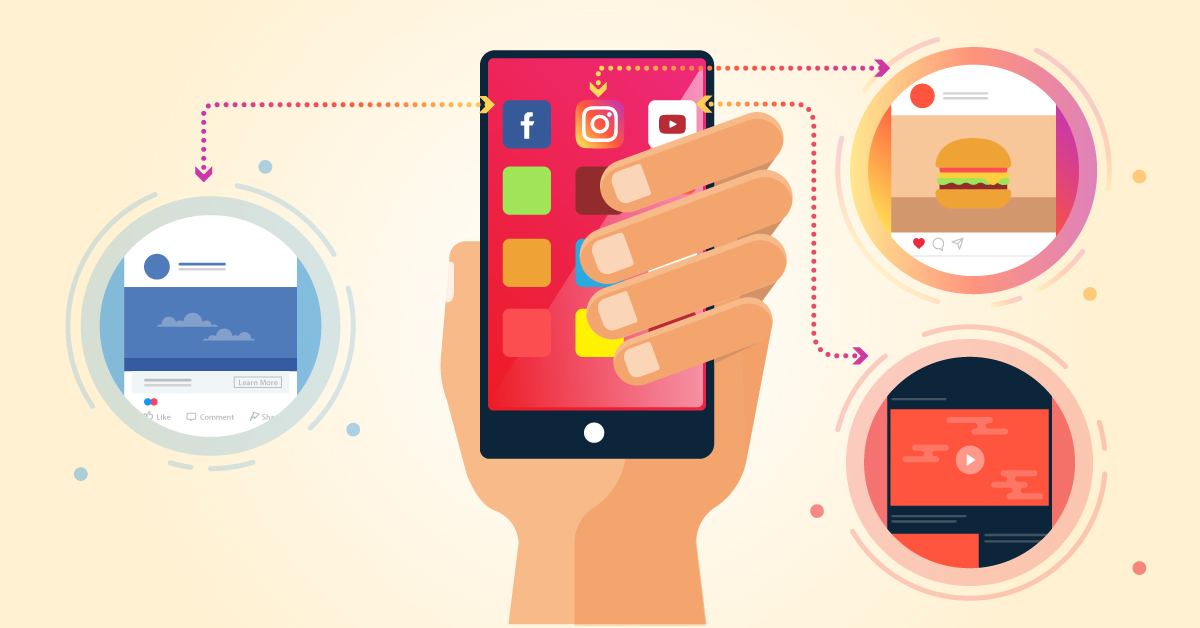
In the digital age, few innovations have reshaped human behavior and interactions as profoundly as social media. From its nascent stages in the early 2000s to its colossal presence today, social media platforms have become an integral part of our daily lives. This blog post seeks to chronicle the evolution of social media, examining its historical trajectory, societal impacts, and envisioning its future.

1. Humble Beginnings: The Dawn of Social Media
The story of social media begins long before the advent of Facebook or Twitter. The 1970s and 80s saw the rise of the first computer-mediated communications. Systems like CompuServe and bulletin board systems (BBS) allowed users to communicate and share files.
In the 90s, platforms such as SixDegrees and Friendster hinted at the potential of interconnected networks, allowing users to create profiles and connect with friends. However, they were limited by technology and couldn’t sustain large user bases.
2. The Big Bang: Rise of the Titans
2004 was a pivotal year. Harvard student Mark Zuckerberg launched Facebook from his dormitory. Initially exclusive to Harvard students, it eventually opened its doors to the general public. With its user-friendly interface, it changed the social media game forever.
Not far behind, Twitter emerged in 2006, introducing microblogging. Its 140-character limit tweets revolutionized real-time news dissemination and public discourse. By the 2010s, platforms like Instagram, Snapchat, and Pinterest had sprung up, each offering unique ways for users to share their experiences and communicate.
3. Societal Impacts: The Double-Edged Sword
Connectivity & Community Building: Platforms like Facebook and LinkedIn allow users from around the world to connect. Long-lost friends reunite, families separated by distance come closer, and professionals network globally.
Business & Marketing Revolution: The rise of social media has ushered in an era of digital marketing. From multinational corporations to local bakeries, brands harness these platforms for promotion, customer engagement, and feedback.
Political Mobilization: Platforms like Twitter have played pivotal roles in global movements and uprisings, notably the Arab Spring. Politicians use it for campaigns and real-time communication.
However, the coin has a flip side.
Mental Health Concerns: Comparing lives online has led to issues like anxiety, depression, and the feeling of inadequacy, especially among teenagers.
Misinformation & Echo Chambers: The viral nature of social media can spread falsehoods rapidly. Algorithms create echo chambers where users are repeatedly exposed to similar views, perpetuating biases.
4. Landmark Moments in Social Media
Barack Obama’s 2008 Campaign: Harnessing social media for political campaigns was epitomized by Obama’s 2008 presidential run, laying the groundwork for digital political campaigns worldwide.
The Ice Bucket Challenge: A testament to the power of viral trends for charitable causes. Millions participated, including celebrities, raising awareness and funds for ALS research.
Cambridge Analytica Scandal: Revealed in 2018, this scandal highlighted the dark side of data harvesting, where user data was used to influence electoral processes.
5. The Future: Where Are We Heading?
Virtual Reality (VR) & Augmented Reality (AR): Platforms like Facebook are already experimenting with integrating VR. The idea is to have virtual chat rooms and meetings, making interactions more immersive.
Decentralized Social Networks: Blockchain technology might power future platforms, giving users more control over their data and reducing monopoly concerns.
Regulations and Policies: Given concerns over privacy, misinformation, and monopoly, stringent regulations will likely be a significant part of social media’s future.
RELATED POSTS
View all
